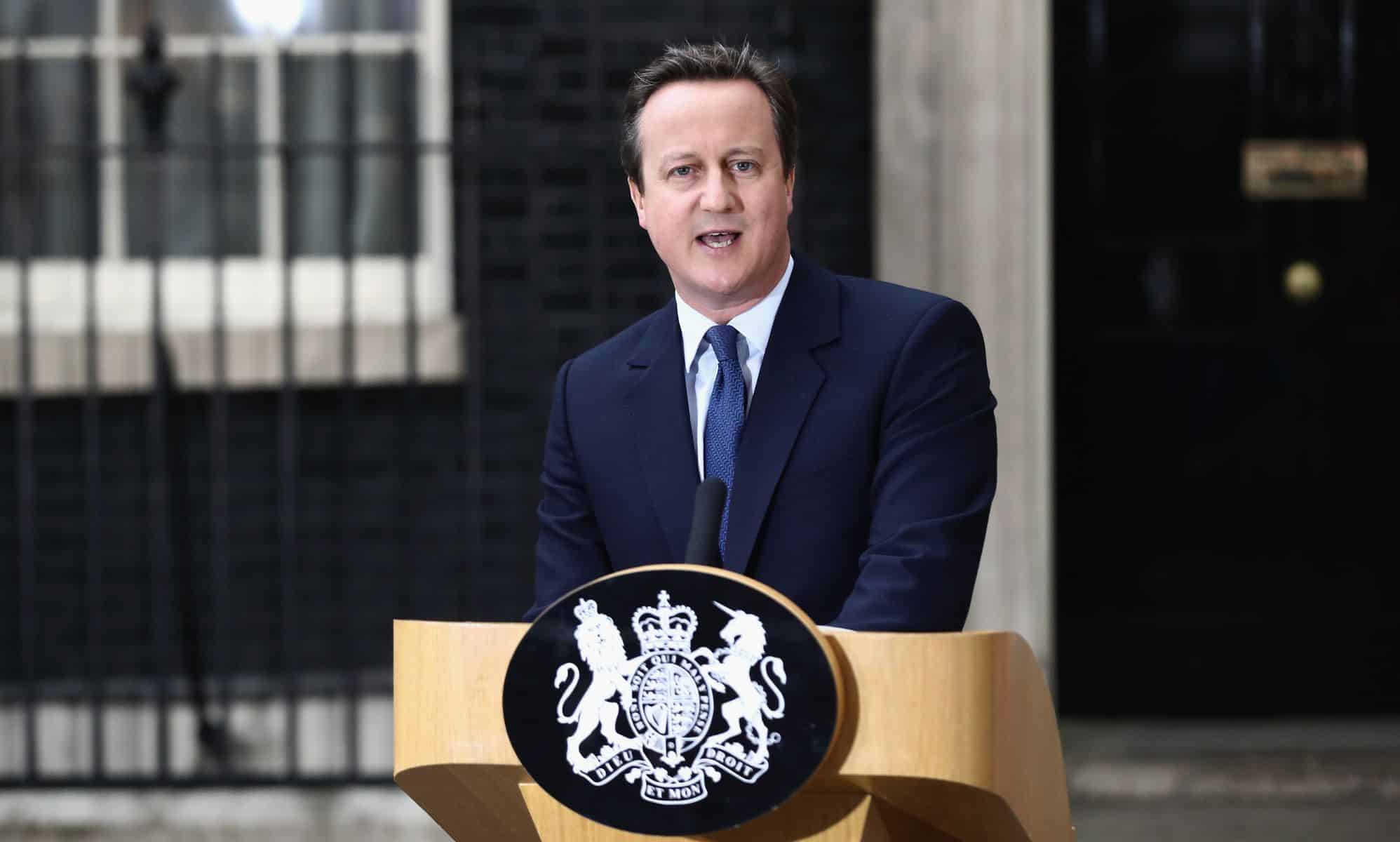A victim of Daryll Rowe, who was infected with HIV, can’t get compensation because he heckled Tory prime minister David Cameron (pictured). (Getty)
A man who was deliberately given HIV has been left “deflated and humiliated” after being denied compensation because he shouted at David Cameron a decade ago.
Stuart Rodger, 33, was one of at least nine men who were deliberately given HIV by Darryl Rowe, who was handed a life sentence in 2018.
While the Criminal Injuries Compensation Authority (CICA) gave Rowe’s other victims £22,000 in compensation, Rodger was denied recompense in 2018 because he has an unspent conviction.
Rodger was convicted of “threatening and abusive behaviour” for shouting “No ifs, no buts, no public sector cuts” at David Cameron, after hiding in a public toilet when the then-prime minister made a speech in Glasgow in 2012. He pleaded guilty at court and was ordered to carry out community service.
The CICA has a blanket rule that prevents anyone with unspent convictions from receiving compensation if they themselves are the victims of a crime.
Rodger later appealed the ruling and even launched a judicial review to Scotland’s supreme civil court. But the claim was rejected in May this year.

Rodger told the i he felt “deflated and humiliated” after fighting CICA for years to access the compensation.
He is only victim left with legal fees from the years-long case, and said he has no chance of getting compensation as he’s “fallen through a legal crevice”.
“I’m disappointed,” he said. “The money would have helped me live my life and would have given me a sense of security that I’ve lost, as a result of the crime of which I was a victim.”
A Ministry of Justice (MOJ) spokesperson said Rodger’s case was part of a “horrific crime” and that the government agency’s “sympathies remain with [Rowe’s] victims”. Yet, the MOJ is still refusing to award Rodger compensation due to his unspent conviction.
“Our compensation scheme is one of the most generous in the world – paying out over £158m to victims and families impacted by violent crime in the last year,” the spokesperson said. “Unspent convictions can lead to reduced or withheld compensation to reflect the harm offenders may have done to society.”
Rodger said his diagnosis, the stigma surrounding being HIV positive and the horrific circumstances by which he contracted the virus affects him greatly.
“That’s a lot of mental energy being used up,” Rodger said. “And something that I have struggled with all my life is focusing, whether on big things like pursuing a career or small things like listening to the person talking to me.”
He continued: “And when I’m thinking about that event, every single day, that’s obviously not helping.”

The government-funded scheme said the 2012 rule was designed to ensure that only “blameless victims of violent crime” receive compensation.
The unspent convictions rule has been criticised as being ‘discriminatory’, and the government opened a consultation on this eligibility rule in June.
The MOJ said the government agency will decide “whether or not to revise the rule”. It will share the conclusions and proposals following a “comprehensive review” of the consultation, which ended on 5 August.
It did not give a timescale for when such a decision might be given.
Rodger submitted a response to the government consultation on the eligibility criteria. He argued his case is proof that the rule must change.
He added that he remained “proud of what [he] did” in bringing a case against Rowe and battling to receive compensation from the government.
